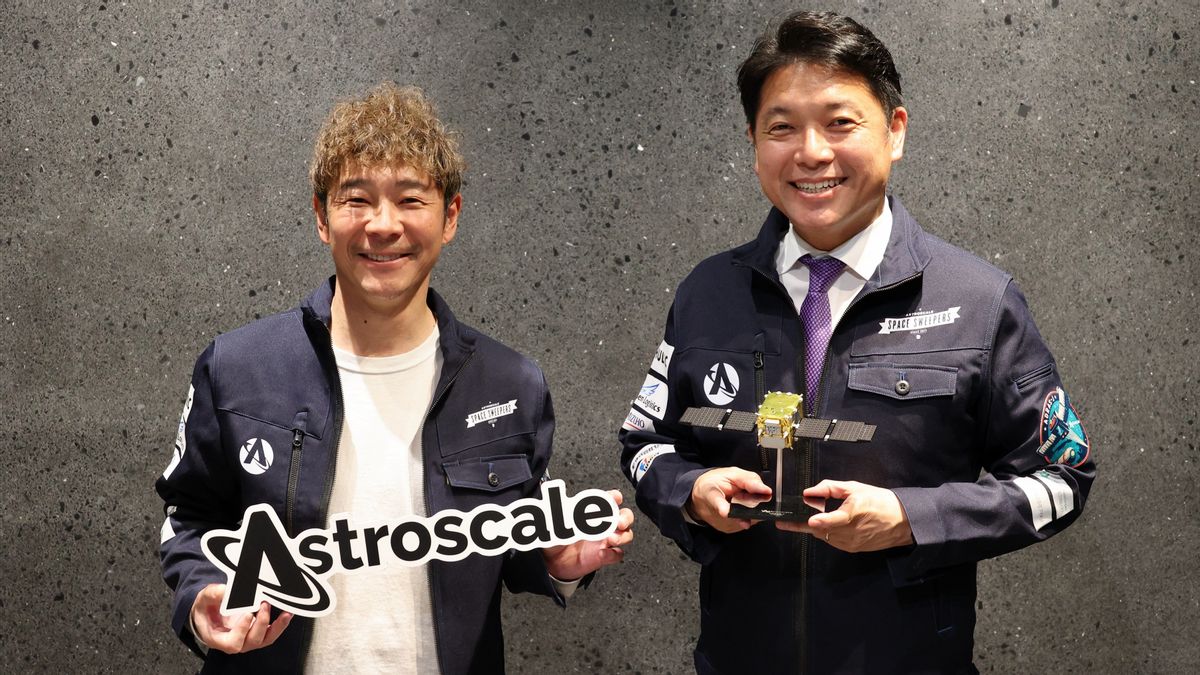JAKARTA - The increase in the amount of waste in space (swarm of debris) has prompted the US government to try to establish new space hygiene rules, while private companies are also investing in ways to deal with dirty orbit environments.
Thousands of commercial satellites were launched into Earth's orbit at record speed, increasing the risk of collisions that could produce dangerous trash swarms. And without the norms of military behavior in space, some people are concerned about space gun attacks that can produce much more trash.
At stake are billions of dollars in assets - orbital devices that are critical to smartphone navigation and maps, text messages, calls, and internet connections used by industry and people globally.
On Friday, March 3, the US Space Command released an official list of what they consider to be sustainability behavior in space, in an attempt to direct military norms in orbit.
"The idea is that we hope our opponents do the same," Brigadier General Richard Zellmann, deputy director of the command operation unit, told Reuters.
The report includes various things including parts of the space junk that encourage space players to safely dispose of their dead satellites and notify other operators if there is a problem with their spacecraft that may pose a waste hazard.
"You have to find a way to allow the economy to grow in the space domain, and to do so you need to make sure that it remains sustainable," said Zellmann, who oversees most of the US military's space tracking efforts.
"The key to that will ensure that we can solve the waste problem, or at least mitigate it so that it is accepted," he said.
While the government tries to handle international rules, a direct response to an increase in the amount of waste in orbita comes in many ways from the private sector.
Tokyo-based Astroscale, with subsidiaries in the US and UK, is testing a garbage removal device called ELSA designed to stick to a dead satellite and pull it into Earth's atmosphere to burn.
Jack Deasy, vice president of business development at a US subsidiary of Astroscale, said the industry's special policy for space behavior similar to the norm proposed by the US Space Command was indispensable before a collision that could potentially carry troublesome regulations.
"The type of thing that is forced, driven by a crisis, is not always the best way to set long-term policies that protect the ecosystem," he said.
Astroscale, a start-up company from Japan focused on cleaning up space debris, managed to raise USD 76 million in a G series funding this week. The company aims to remove the growing amount of space junk after years of satellite and spacecraft launches.
In recent years, Elon Musk's SpaceX has launched thousands of Starlink internet satellites in low-Earth orbit. Several other companies, including Jeff Bezos' Amazon, are also planning to do the same.
"In particular in low orbits, which are getting denser, people who invest billions of dollars to run the constellation have many incentives to keep the environment clean," said Deasy.
Investors in this G series include Mitsubishi Electric and Japanese billionaire Yusaku Maezawa, who is also a prospective passenger on SpaceX's next-generation Starship rocket system.
"Sampah yang tersebar di luar angkasa bisa menjadi masalah besar di masa depan," cuit Maezawa pada Senin saat ia mengumumkan investasi sebesar 23 juta dolar AS di Astroscale.
One part of the space junk reduction effort is satellite maintenance services in space, a concept developed by dozens of companies, including Astroscale, Northrop Grumman, Maxar, and Airbus. The idea is to send service satellites to approach and attach to damaged spacecraft or their fuel to extend their life.
The concept of preserving the mission, which has been tested by Astroscale and Northrop Grumman in space, has triggered the birth of many other companies looking to build on that momentum.
Australian-based Neumann Space company, for example, is developing technology that can help recycle old satellites that don't serve as fuel - using used metals to generate plasma boosts for new satellites. This can be used in partnership with satellite maintenance companies, he hoped.
"Good because you can extend the mission by recharging with what's already in space," said Neumann CEO Herve Astier, quoted by Reuters. His company plans to launch a test satellite in June. "Using metal already out there, that's a way to progress in terms of sustainability."
The English, Chinese, Japanese, Arabic, and French versions are automatically generated by the AI. So there may still be inaccuracies in translating, please always see Indonesian as our main language. (system supported by DigitalSiber.id)













